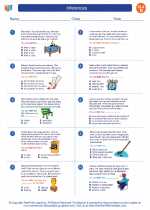Inferences Study Guide
What are Inferences?
An inference is a conclusion or deduction based on evidence and reasoning rather than explicit statements. It involves using clues from the text to draw a logical conclusion.
How to make Inferences:
To make inferences, readers must analyze the text, gather relevant information, and use their own background knowledge to draw conclusions that are not explicitly stated in the text.
Types of Inferences:
- Textual Inferences: These inferences are made based on information that is directly stated in the text.
- Contextual Inferences: These inferences are made by considering the surrounding context and using background knowledge to understand the text.
Why are Inferences Important?
Making inferences is an important reading comprehension skill as it allows readers to understand and interpret the text at a deeper level. It helps readers to make connections, draw conclusions, and comprehend the author's intended meaning.
Practice Making Inferences:
Here are some tips for practicing making inferences:
- Look for clues in the text that may not be explicitly stated.
- Consider the characters' actions, thoughts, and feelings to make inferences about their motives or personality.
- Pay attention to the setting and the mood to draw inferences about the atmosphere or the time period.
- Use your background knowledge to fill in the gaps and draw conclusions.
Example:
Read the following passage and make an inference:
"The sky was dark, and the wind howled outside. Sarah cuddled up with a blanket, a cup of hot cocoa, and a book."
Inference: Based on the dark sky, howling wind, and Sarah's actions, it can be inferred that it is a stormy night, and Sarah is seeking comfort indoors.
Now that you have an understanding of inferences, try practicing this skill with various texts to improve your reading comprehension abilities!
[Inferences] Related Worksheets and Study Guides:
.◂English Language Arts Worksheets and Study Guides Fourth Grade. Inferences
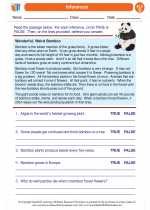
 Worksheet/Answer key
Worksheet/Answer key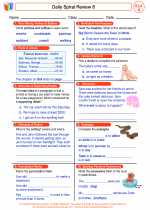
 Worksheet/Answer key
Worksheet/Answer key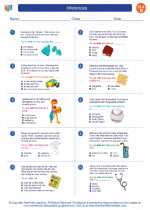
 Worksheet/Answer key
Worksheet/Answer key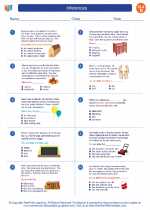
 Worksheet/Answer key
Worksheet/Answer key